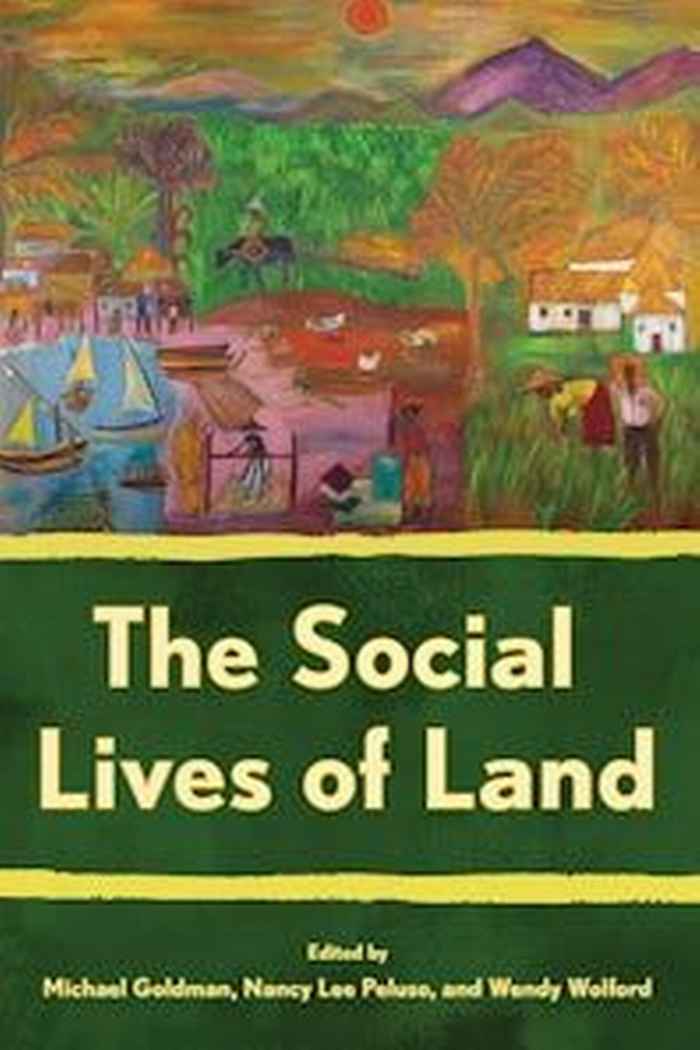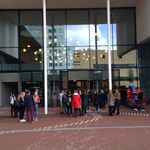Remittance Houses in the Remittance Forests of Mountain Java
Wertheim Lecture by Nancy Lee Peluso
- Date
- 15 October 2024
- Time
- 15:00 -17:00
- Room
- REC-C0.01 (let op! gewijzigde locatie)
Peluso locates this discussion in a localized, relational history of the formation of the political forest in this highland site, including the decisions to take over riparian land, steeply sloped land, and customary land for which no potential taxpayer was identified.
She discusses the important and often unacknowledged relevance of various modalities of migration to the makings of the montane political forests of Java over time. Peluso demonstrates that the most recent conjunctural moment has given rise to the phenomenon of remittance houses on forest land, the creation of remittance forests, and the ways working class mobilities are affecting the politics of forest land and plantations is a unique historical moment — it could not have happened in the same way sooner.
She argues for viewing remittance houses and remittance forests as moments of empowerment for forest plantation workers in centuries-long struggles between foresters and villagers.

About Nancy Lee Peluso
Nancy Lee Peluso is Professor of the Graduate School in Society & Environment, Department of Environmental Science, Policy and Management, at the University of California, Berkeley, and an affiliate professor in Berkeley’s Geography and Anthropology departments, as well as the Energy and Resources Group at Berkeley. She held the Rausser College of Natural Resources’ Henry J. Vaux Distinguished Professorship of Forest Policy from 2009-2019. She was Chair of the Center for Southeast Asian Studies from 2020-2023. In 2023, she was elected Vice President of the Association of Asian Scholars and will serve as the organization’s President in 2025-26.
Over 90 peer-reviewed publications
Peluso has conducted research in Java and Kalimantan, Indonesia for over 40 years. She is author or co-author of over 90 peer-reviewed publications. Her most recent book, The Social Lives of Land, (Cornell University Press), was co-edited with Wendy Wolford and Michael Goldman. Other books include New Frontiers of Land Control (co-edited with Christian Lund, Routledge, 2012); Taking Southeast Asia to Market: Commodities, People and Nature in a Neoliberal Age (co-edited with Joseph Nevins, Cornell University Press, 2008); Violent Environments (co-edited with Michael Watts, Cornell University Press, 2001); Borneo in Transition: People, Forests, Conservation, and Development (co-edited with Christine Padoch, Oxford University Press, 1996, second edition 2006).
Two current projects, in East Java and West Kalimantan
Peluso has two current projects, both with ongoing fieldwork commitments. First is field research in East Java, Indonesia as part of a collaboratively designed, NSF-funded project on “Labor Migration and Land Transformations around Forest and Agricultural Plantations in Indonesia” with co-PIs Suraya Afiff (University of Indonesia). Kim Carlson (NYU), and Lisa Kelley (University of Denver). Her second, longer term project, “Gold Frontiers and other Smallholder Territories,” is based in West Kalimantan, Indonesia and traces the regional landscape history through territorial formations and resource extractions over time. Both projects are grounded in the life histories of workers, smallholders, and their families and the lives and historical trajectories of iconic and working forest landscapes.
Practical information
This Wertheim Lecture is organized by Moving Matters: People, goods, Power and Ideas at the AISSR, University of Amsterdam.
Date: Tuesday, October 15, 2024
Time: 15.00-17.00 hrs
Location: Roeterseiland Campus, REC-C0.01 (let op! gewijzigde locatie!)
Registration
Attendance is free; registration is required
